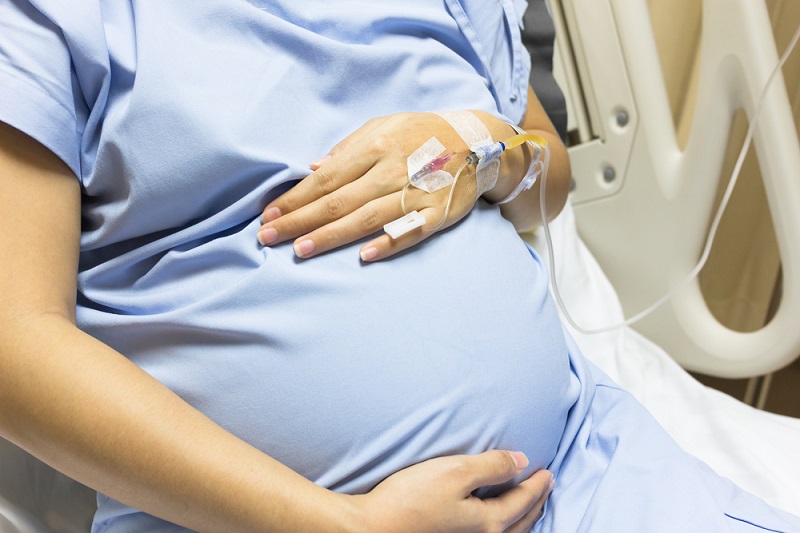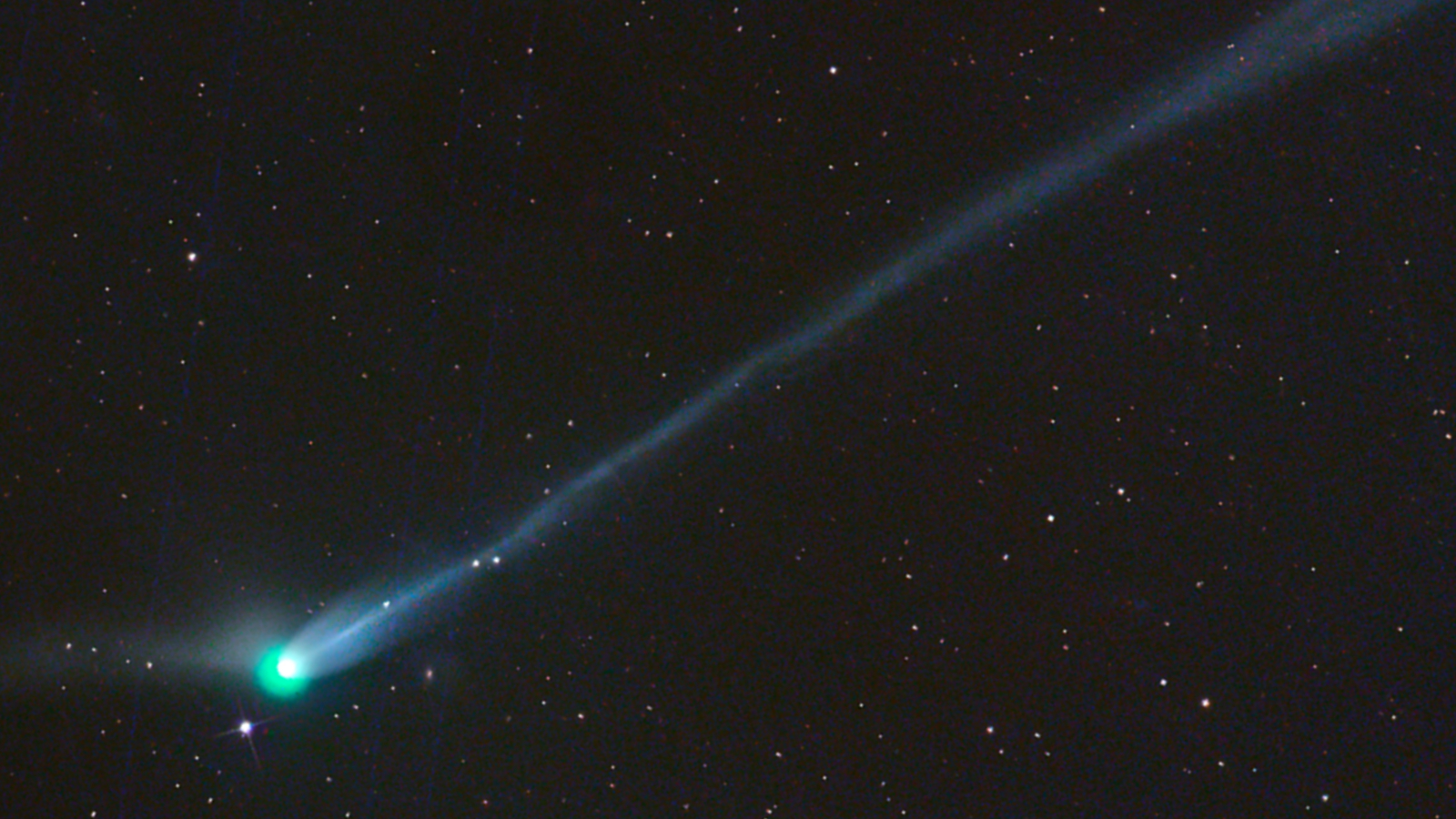How COVID-19 might affect a pregnant woman's placenta
In a small study, most women who contracted the virus still delivered healthy babies.

Get the world’s most fascinating discoveries delivered straight to your inbox.
You are now subscribed
Your newsletter sign-up was successful
Want to add more newsletters?

Delivered Daily
Daily Newsletter
Sign up for the latest discoveries, groundbreaking research and fascinating breakthroughs that impact you and the wider world direct to your inbox.

Once a week
Life's Little Mysteries
Feed your curiosity with an exclusive mystery every week, solved with science and delivered direct to your inbox before it's seen anywhere else.

Once a week
How It Works
Sign up to our free science & technology newsletter for your weekly fix of fascinating articles, quick quizzes, amazing images, and more

Delivered daily
Space.com Newsletter
Breaking space news, the latest updates on rocket launches, skywatching events and more!

Once a month
Watch This Space
Sign up to our monthly entertainment newsletter to keep up with all our coverage of the latest sci-fi and space movies, tv shows, games and books.

Once a week
Night Sky This Week
Discover this week's must-see night sky events, moon phases, and stunning astrophotos. Sign up for our skywatching newsletter and explore the universe with us!
Join the club
Get full access to premium articles, exclusive features and a growing list of member rewards.
A small new study found signs of damage to the placenta in pregnant women with COVID-19, but it's far too early to say whether this damage actually affects birth outcomes. Most women with the novel coronavirus who had these abnormalities gave birth to healthy babies at-term.
The study researchers examined placentas from 16 pregnant women who tested positive for COVID-19, and found that the placentas contained blood clots and showed signs of abnormal blood flow between mother and baby.
However, the study does not prove that COVID-19 was behind these abnormalities with the placenta. Indeed, nearly half of pregnant women without COVID-19 who had their placentas examined for other reasons also show such signs of injury.
In addition, given that most of these women had normal pregnancies and delivered seemingly healthy babies at full-term, it's unclear these placental changes mean much. The researchers note that even partly damaged placentas can often supply babies with sufficient nutrients.
"Placentas get built with an enormous amount of redundancy," study co-author Dr. Emily Miller, an assistant professor of obstetrics and gynecology at Northwestern University Feinberg School of Medicine in Chicago, said in a statement. "Even with only half of it working, babies are often completely fine."
Still, Miller added "there's a risk that some pregnancies could be compromised." The findings suggest the need to closely monitor pregnant women with COVID-19, the authors concluded.
Such monitoring might include ultrasounds to measure if the baby is growing at a typical rate, and so called non-stress tests that check how well the placenta is delivering oxygen, the researchers said.
Get the world’s most fascinating discoveries delivered straight to your inbox.
However, experts not involved with the study expressed concern that many other diseases in pregnancy could lead to similar injury to the placenta, and so it's too soon to know if these changes were caused by COVID-19.
Related: 5 Reasons Why Placentas Are Amazing
Signs of injury
The placenta is a vital structure that supplies oxygen and nutrients to the baby in utero, and removes waste products from the baby's blood, according to The Mayo Clinic. Some viral infections in pregnancy, such as cytomegalovirus and Zika virus, are known to be linked with abnormalities in the placenta, but whether this occurs with coronaviruses is unknown. (These diseases can also lead to problems after birth, such as the microcephaly, or reduced head volume, caused by Zika virus.)
The new study, published May 22 in American Journal of Clinical Pathology, is one of the largest to examine placentas in pregnant women with COVID-19. Among the 16 women in the study, 15 delivered in the third trimester, and one experienced a miscarriage in the second trimester. The researchers don't know whether the miscarriage was related to the woman's COVID-19 infection.
The researchers compared the placentas of these 16 pregnant women with COVID-19 with those of 17,479 women without COVID-19 who required a placental examination, often because they had pregnancy-related conditions, such as preterm birth or preeclampsia. But within this group of "controls" were 125 women who had melanoma. The authors chose to focus on this group in particular because they require placental examination after birth to check for cancer spread; but melanoma itself is not thought to affect pregnancy outcomes.
About 80% of the women with COVID-19 showed a type of placental injury known as "maternal vascular malperfusion," which is a sign of insufficient blood flow between mother and baby due to abnormal blood vessels. In contrast, 27% of women with melanoma and 44% of all controls (women without COVID-19 with and without melanoma) showed this abnormality.
"Our findings indicate a lot of the blood flow was blocked off, and many of the placentas were smaller than they should have been," Miller said.
In women with COVID-19, the researchers also observed "intervillous thrombi," or blood clots in the placenta. This finding fits with research showing that some patients with COVID-19 experience clotting problems, the authors said.
Skepticism
However, Dr. Kristina Adams Waldorf, a professor of obstetrics and gynecology at the University of Washington School of Medicine, did not find the results convincing.
"I'm concerned that the scientists that wrote this manuscript have taken a leap from seeing some placental pathology to the conclusion that the virus does in fact cause injury," Adams Waldorf told Live Science. She noted that there are "many many other conditions that can cause a similar profile of placental pathology." This makes it hard to tease out the effects of COVID-19 from other common conditions during pregnancy, such as high blood pressure, obesity and diabetes, she said.
Much larger studies that take into account these common pregnancy conditions are needed to get a better picture of the specific effects of COVID-19 in pregnancy, she said.
Other studies in lab dishes can look at the effects of the virus on placental cells. Adams Waldorf is currently conducting lab studies to examine the placenta's antiviral immune response to the virus.
In addition, most of the women in the current study contracted COVID-19 late in pregnancy, in the third trimester, but little is known about the effects of the virus early in pregnancy.
The new study also found that, among the 15 live births to women with COVID-19, none of the babies tested positive for the disease.
One recent study suggested that three babies in China may have contracted the new coronavirus in the womb, in what's known as vertical transmission, but these findings were inconclusive, Live Science previously reported. Overall, evidence so far suggests that vertical transmission is "at most, very rare," the authors of the new study wrote.
- Are you pregnant? 12 early signs of pregnancy
- 18 ways pregnancy may change your body forever
- 20 of the worst epidemics and pandemics in history
Originally published on Live Science.
OFFER: Save 45% on 'How It Works' 'All About Space' and 'All About History'!
For a limited time, you can take out a digital subscription to any of our best-selling science magazines for just $2.38 per month, or 45% off the standard price for the first three months.

Rachael is a Live Science contributor, and was a former channel editor and senior writer for Live Science between 2010 and 2022. She has a master's degree in journalism from New York University's Science, Health and Environmental Reporting Program. She also holds a B.S. in molecular biology and an M.S. in biology from the University of California, San Diego. Her work has appeared in Scienceline, The Washington Post and Scientific American.
 Live Science Plus
Live Science Plus











